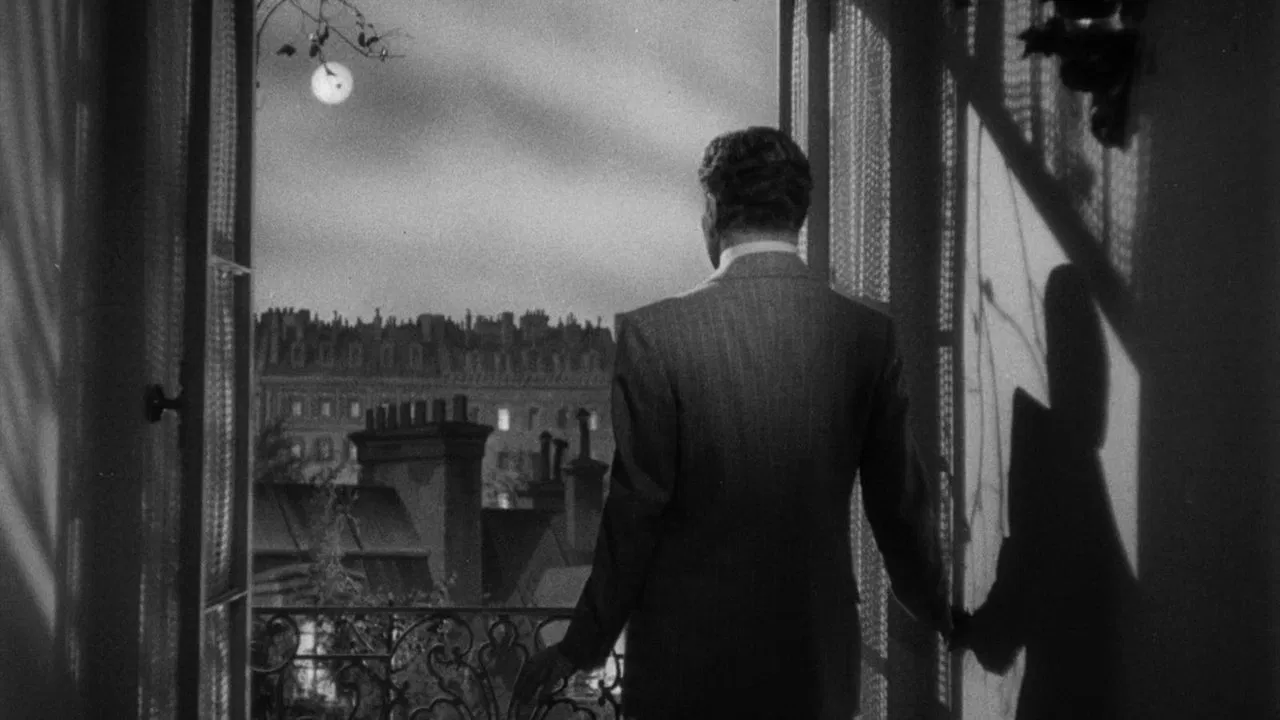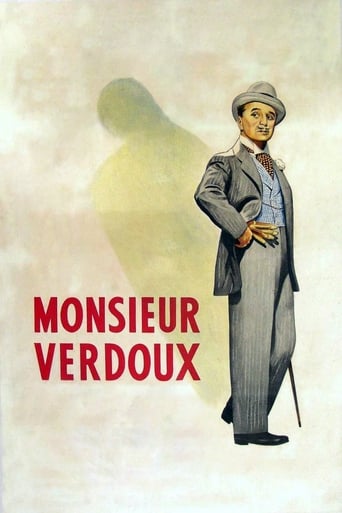

An unemployed man supports his family by marrying and murdering rich women for their money. Chaplin made only a handful of films after the silent era and this one followed "The Great Dictator" after a seven-year gap, a period over which the great comedian seems to have lost his gift for laughs. Perhaps this was just the result of Chaplin in his autumnal years wanting to do something more substantial, but he seems unsure of whether he's doing comedy or drama. This is the first film in which Chaplin speaks English, but he hardly says anything that is funny. After a slow start, this turns out to be a decent film but it seems the premise had potential for much more humor than is mined here.
... View MoreA suave but cynical man (Charles Chaplin) supports his family by marrying and murdering rich women for their money, but the job has some occupational hazards.This film is brilliant, because it is not just entertaining, but also has a strong message. On the surface, it is a man who marries women and kills them in order to get their money. This in itself makes for a good film (and is somewhat risqué for the 1940s). But then, it is also a metaphor for society -- capitalism, imperialism, war... Chaplin takes on the Great Depression and the war industry.Most people know Chaplin for his silent films and tramp character, but he really became a strong filmmaker in his later years. This film, along with "Great Dictator" and "King in New York" are among his best works. It is a shame that for whatever reason he is not remembered for the second half of his career.
... View MoreChaplin's 'Monsieur Verdoux' takes risks but is flawed, and I recommend that readers search for Michael Coy's review ("Dire Chaplin Black Farce", 1/99) because he identifies many of the problems with it. Chaplin was a genius in many ways, including physical comedy, film scoring and by writing unique cinematic moments. Chaplin's anti-capitalist political views were keen, and his monologue at the film's conclusion strongly resonates today.However, Chaplin wasn't top-shelf as a director. There is some dramatic tension, but not as much as one hopes. Chaplin also brings silent-era slapstick along (when possible) and mixes it in with serious undertones at the conclusion. It is a soup with many ingredients.There are some typically wonderful Chaplinesque moments. Martha Raye's scenes as the unkillable wife and then the inconvenient spouse are the film's highlight. I also think the scenes with Marilyn Nash are also very good. Nash's beautiful, "what if" Belgian girl is a moral counterweight to the misogyny experienced elsewhere.Chaplin deserves a lot of credit for taking on such a risky role and expressing his populist views so succinctly. With another director it could have been great. It is still worth viewing, but will disappoint those who mind its obvious flaws.
... View MoreI suppose the only thing one has any right to expect from a Chaplin movie is the unexpected. If that's what you're looking for, Monsieur Verdoux won't disappoint you.Still, I have to confess that it disappointed me. There is none of the genius that makes his previous movie, The Great Dictator, one of the marvels of movie history. Most of this is just the mildly amusing story of a man who loses his job in a bank and so, to support his invalid wife and child, marries a series of foolish wealthy women and then kills them off for their money. It never considers the question of whether those marriages are consummated or not, whether he is therefore being physically unfaithful to his invalid wife, etc. In one scene we learn that he sleeps in the same room with one of his wealthy conquests, but that's it.Near the end, the political world starts to intrude more and more into this otherwise anodyne story, usually through newspaper headlines. We see that Europe is arming for another world war, that the Fascists kill innocent women and children in Spain, etc., while the plot meanders on.Then, finally, when the police start to catch up with Verdoux, he begins to give speeches about the mass killings in Europe, as if out of the blue. He suddenly has the voice we heard in The Great Dictator, but this time it comes out of nowhere, and it seems much less convincing. Is this really why Chaplin told a story of a man who poisoned wealthy widows, as a way of condemning European armament? In 1940's The Great Dictator such words had the terrible sound of foreboding prophesy. Several years after the war (1947), with no new war criminals portrayed after Hitler and Mussolini, this seems, basically, old news.I recognize Chaplin's genius, and wish I could talk about examples of it in his movie, but I really didn't see any. More's the shame.
... View More